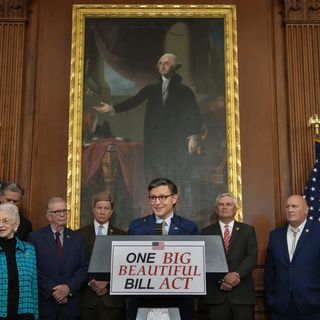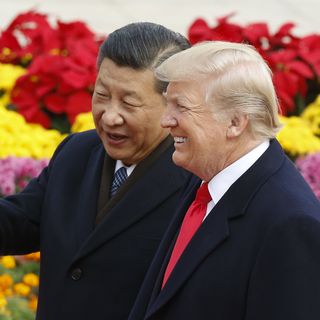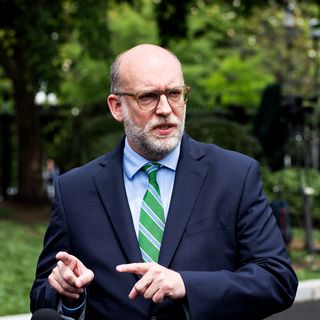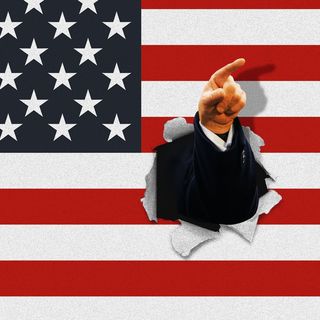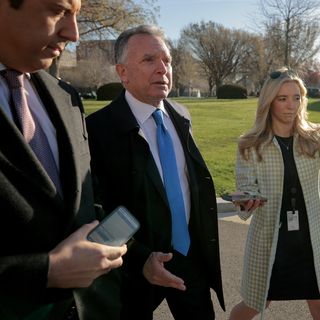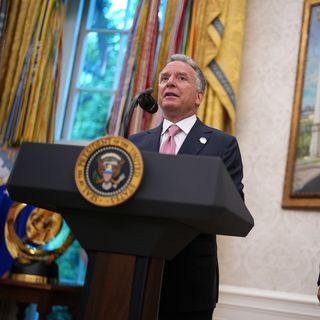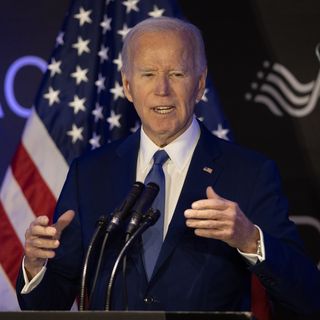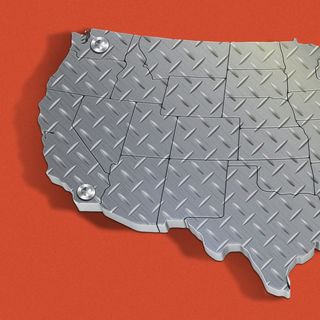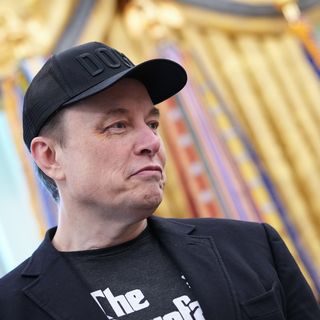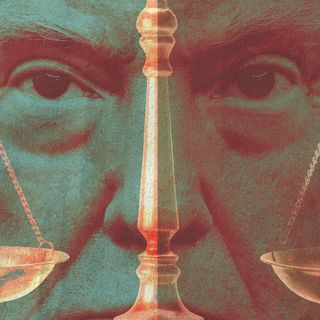FBI responding to "targeted terror attack" in Boulder, Colorado, Bureau chief says
State and local law enforcement from Boulder, Colorado, and the FBI are responding to a Sunday afternoon attack that left multiple people with burns near the site of a demonstration calling for the release of Hamas-held hostages in Gaza.
The big picture: FBI chief Kash Patel on X called the incident a "targeted terror attack," though Boulder Police Chief Steve Redfearn said at a Sunday afternoon briefing that police were not treating the incident as terrorism at this stage. He confirmed that a suspect was in custody.
The latest: Six victims, ages 67 to 88, had been taken to local hospitals after witnesses reported a suspect had "used a makeshift flame thrower and threw an incendiary device into the crowd," FBI Denver Special Agent in Charge Mark Michalek said at a Sunday evening briefing.
- At least one patient was in critical condition, Redfearn said at the briefing.
- The suspect was heard to yell "free Palestine" during the attack, Michalek said.
- The suspect has been identified as 45-year-old Mohamed Sabry Soliman.
Details: Run For Their Lives, which organized the walk in support of the hostages, said in a statement the group met at 1pm local time to walk the length of the Pearl Street Mall and back when the incident happened.
- "This is not a protest; it is a peaceful walk to show solidarity with the hostages and their families, and a plea for their release," the group said.
- Authorities said they were called to the incident at 13th and Pearl streets at 1:26pm MT.
- Witnesses said someone had thrown Molotov cocktails at people and Redfearn confirmed that police received reports that individuals had been "set on fire."
- Police arrived on the scene and found multiple victims with injuries, some of which Redfearn said he believed were life-threatening.
- President Trump has been briefed on the situation, a White House official told Axios.
What we're watching: "This act of terror is being investigated as an act of ideologically motivated violence based on the early information, the evidence, and witness accounts," FBI deputy director Dan Bongino said on X.
- Redfearn told reporters asking whether the attack was connected to the march to free Hamas' hostages it was too early to speculate on a motive.
- "If that motive was a group was targeted, we will absolutely step up and ensure that additional security, additional presence," he said at the briefing.
Zoom in: Director of National Intelligence Tulsi Gabbard wrote on X that the Office of the DNI's National Counterterrorism Center was "working with the FBI and local law enforcement on the ground investigating the targeted terror attack against a weekly meeting of Jewish community members.
- Homeland Security Secretary Kristi Noem said on X the DHS is monitoring the situation and working with interagency partners, including the FBI.
- Colorado Attorney General Phil Weiser said in an emailed statement that from "what we know, this attack appears to be a hate crime given the group that was targeted," and he offered support from the attorney general's office.
I am closely monitoring the situation in Boulder, and my thoughts go out to the people who have been injured and...
Posted by Governor Jared Polis on Sunday, June 1, 2025
What they're saying: Boulder's Jewish Community Center in a statement said they're "heartbroken to learn that an incendiary device was thrown at walkers at the Run for Their Lives walk on Pearl Street as they were raising awareness for the hostages still held in Gaza."
- Israel's Ambassador to the UN, Danny Danon, in a statement on the incident said: "Terrorism against Jews does not stop at the Gaza border — it is already burning the streets" of the U.S.
- "Today, in Boulder, Colorado, Jewish people marched with a moral and humane demand: to return the hostages. In response, the Jewish protesters were brutally attacked," he added.
- "Make no mistake — this is not a political protest, this is terrorism. The time for statements is over. It is time for concrete action to be taken against the instigators."
Zoom out: Colorado Gov. Jared Polis noted in another statement on X that the U.S. Jewish community was already reeling from the fatal shootings of two Israeli Embassy staff in D.C. last month.
- It "is unfathomable that the Jewish community is facing another terror attack here in Boulder, on the eve of the holiday of Shavuot no less," the governor said.
Editor's note: This a breaking news story. Please check back for updates.


